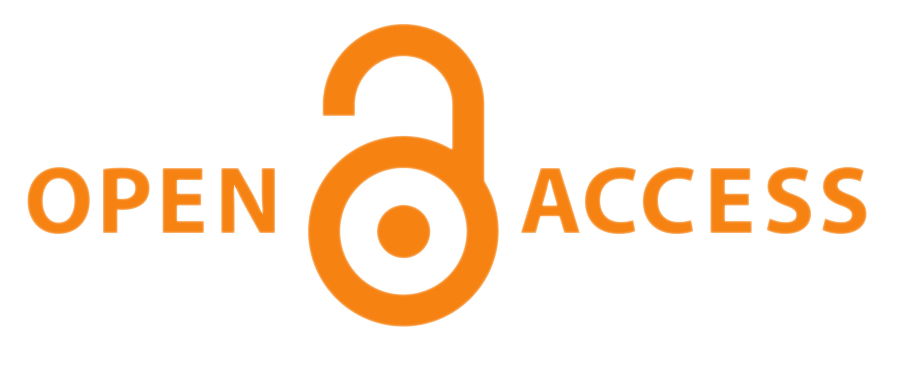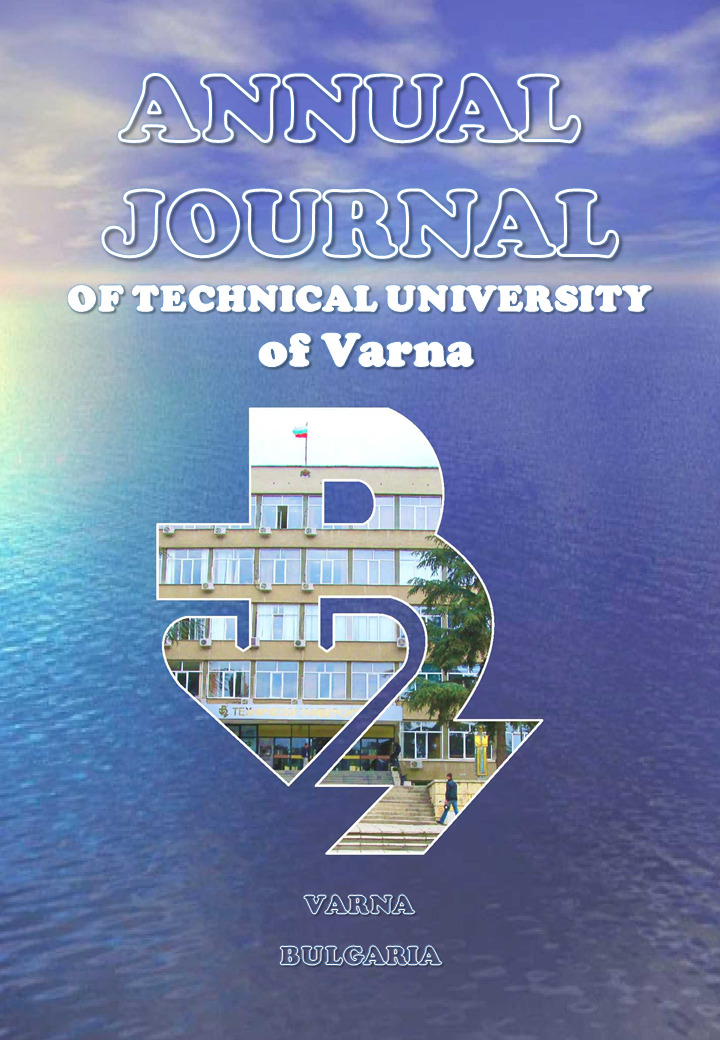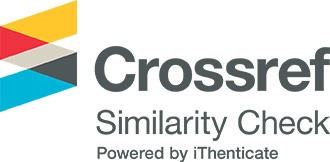An Assessment of university undergraduates’ adoption of mobile technologies for learning
DOI:
https://doi.org/10.29114/ajtuv.vol4.iss1.150Ключевые слова:
pedagogy, adoption, mobile technology, ICT, undergraduatesАннотация
The study examined influence of undergraduates’ perceived usefulness and ease of use of mobile technologies on its adoption for learning. Two research questions guided the study. Four hundred (400) students were randomly selected from the two purposively selected universities in Ogun State South West Nigeria. The study employed multiple regressions in the analysis of the data collected. From the result it was found out that undergraduate students’ perceived usefulness (=0.305, t=3.867, p<.05) has significant contribution on the adoption of mobile technologies for learning. Also, it was established that undergraduate students’ perceived ease of use (=0.151, t=1.992, p<.05) has significant contribution on the adoption of mobile technologies for learning. The study concluded that perception of students on the usefulness and ease of use influences adoption of mobile technology for learning. Amongst others, the study recommended the need to encourage undergraduates to adopt mobile technologies for learning instead of social media only.
Скачивания
Библиографические ссылки
<p>Al-Said, O. (2015). Students' Use of Mobile Learning and their Barriers towards them. Information, communication &Society, 14 (2),21-28.</p>
<p>Al-Zahrani, H. and Laxman, K. (2014). Factors that Enhance or Hinder Acceptance and Use of Mobile Devices for Learning: A Meta-analysis of 60 Studies on Mobile Learning, Computer Communication & Collaboration, 2(4), 20-25.</p>
<p>Chaka, J.G. and Govender, I. (2017). Students' perceptions and readiness towards mobile learning in colleges of education: a Nigerian perspective, South African Journal of Education, 37, (1,) 1-12.<br /> <a href="https://doi.org/10.15700/saje.v37n1a1282" target="_blank" rel="noopener">Crossref</a></p>
<p>Davis, F.D. (1989). Perceived usefulness, perceived ease of use, and user acceptance of information technology. MIS quarterly, (3), 319-340.<br /><a href=" https://doi.org/10.2307/249008" target="_blank" rel="noopener">Crossref</a></p>
<p>Egunjobi,A.O., Adesanya,A.O., Akorede,J.O. and Olori,A.L. (2007). M-learning in the global educational system: Myth or reality. African Journal for Contemporary Issues inEducation,1(1& 2), 72-75.</p>
<p>Heflin, H., Shewmaker, J., and Nguyen, J. (2017). Impact of mobile technology on student attitudes, engagement, and learning, Computers & Education 107, 91-99. <br /><a href="https://doi.org/10.1016/j.compedu.2017.01.006" target="_blank" rel="noopener">Crossref</a></p>
<p>Kim, D., Rueckert, D., Dong-Joong, K. and Seo, D. (2013). Students' Perceptions and Experiences of Mobile Learning, Language Learning & Technology, 17(3), 52-73.<br /> <a href="https://scholar.google.com/scholar?hl=bg&as_sdt=0%2C5&q=Kim%2C+D.%2C+Rueckert%2C+D.%2C+Dong-Joong%2C+K.+and+Seo%2C+D.+%282013%29.+Students%27+Perceptions+and+Experiences+of+Mobile+Learning%2C+Language+Learning+%26+Technology%2C+17%283%29%2C+52-73.&btnG=" target="_blank" rel="noopener">Google Scholar</a></p>
<p>Mai, M.Y .(2014). Pre-Service Teachers' Perception Towards The Usage of Mobile Learning in Higher Education in Malaysia, Mediterranean Journal of Social Sciences, 5( 19) <br /><a href="https://doi.org/10.5901/mjss.2014.v5n19p252" target="_blank" rel="noopener">Crossref</a></p>
<p>Maryam, A., Abubakar, A., & Musa, H. U. (2015). Peceived Ease of Use and Utilization of E-Learning Technologies by Academic Staff in Federal College of Education, Zaria (FCE, Zaria). MIS Quarterly, 13(3), 319-339. <br /><a href="https://scholar.google.com/scholar?hl=bg&as_sdt=0%2C5&q=Maryam%2C+A.%2C+Abubakar%2C+A.%2C+%26+Musa%2C+H.+U.+%282015%29.+Peceived+Ease+of+Use+and+Utilization+of+E-Learning+Technologies+by+Academic+Staff+in+Federal+College+of+Education%2C+Zaria+%28FCE%2C+Zaria%29.+MIS+Quarterly%2C+13%283%29%2C+319-339.+&btnG=" target="_blank" rel="noopener">Google Scholar</a></p>
<p>Mojaye, E.M. (2015). Mobile phone usage among Nigerian university students and Its impact on teaching and learning. Global Journal of Arts Humanities and Social Sciences, 3(1), 29-38.</p>
<p>Ogulande, O.O., Olafare, F.O & Sakaba, D.A .(2016). Individual and Technological Factors Affecting Undergraduates' Use of Mobile Technology in University of Ilorin, Nigeria, Digital Education Review - Number 29, June 2016. Retrieved from http://greav.ub.edu/der/</p>
<p>Olaitan, W.A and Olusegun, J.O. (2017). Analysis of the attitude of college students towards mobile Phone usage in Nigeria. International Journal of Education, Learning and Development, 5(6), 1-19.</p>
<p>Oyelere, S., Suhonen, J & Sutinen, E. (2016). M-learning: a new paradigm of learning ICT in Nigeria. IJIM, 10(1), 35-44. <br /><a href="https://doi.org/10.3991/ijim.v10i1.4872" target="_blank" rel="noopener">Crossref</a></p>
<p>Shaibu, S., Mike, S.J., Oyelere, S.S and Jarkko, S. (2016). The Impact of Mobile Devices for Learning in Higher Education Institutions: Nigerian Universities Case Study, I.J. Modern Education and Computer Science, 2016, 8, 43-50. <br /><a href="https://doi.org/10.5815/ijmecs.2016.08.06" target="_blank" rel="noopener">https://doi.org/10.5815/ijmecs.2016.08.06</a></p>
Загрузки
Опубликован
Как цитировать
Выпуск
Раздел
Лицензия
СОГЛАШЕНИЕ О ПУБЛИКАЦИИ
Ежегодный журнал Технического университета Варны (ЕЖТУВ) гарантирует опубликование оригинальных материалов и, в то же время, предоставление своим авторам значительной свободы. Для этого мы придерживаемся гибкой политики в отношении авторских прав, означающей, что передача издателю авторских прав отсутствует, и авторы сохраняют эксклюзивные авторские права на свою работу.
При подаче рукописи ответственный автор должен принять условия, изложенные в данном Соглашении о публикации и состоящие в следующем:
ПРЕДОСТАВЛЕНИЕ ПРАВ ОТВЕТСТВЕННЫМ АВТОРОМ
Ответственный автор предоставляет AJTUV в течение полного срока действия авторского права и любых продлений или подновлений этого срока следующее:
• безотзывное неисключительное право публиковать, воспроизводить, переиздавать, передавать, распространять и иным образом использовать Работу в электронных и печатных изданиях и в производных произведениях по всему миру, на всех языках и во всех известных в настоящее время или появившихся впоследствии СМИ.
• безотзывное неисключительное право создавать и хранить электронные архивные копии Работы, в том числе право депонирования Работы в цифровых хранилищах открытого доступа.
• безотзывное неисключительное право лицензировать других лиц на воспроизведение, перевод, переиздание, передачу и распространение Работы при условии, что Авторы должным образом указаны (в настоящее время это осуществляется путем публикации Работы в соответствии с лицензией Creative Commons Attribution 4.0 Unported License).
Авторское право на Работу принадлежит Авторам. Авторы сохраняют за собой права на патенты, товарные знаки и другие права на интеллектуальную собственность.
ОБЯЗАННОСТИ ОТВЕТСТВЕННОГО АВТОРА
При распространении или повторной публикации Работы Ответственный Автор соглашается указывать AJTUV, в котором опубликована Работа, как источник первой публикации. Ответственный Автор гарантирует, что соавторы также будут согласны, чтобы Работа опубликовалась в AJTUV, который будет рассматриваться как первичный источник публикации в случае ее распространения или переиздания.
ГАРАНТИИ СО СТОРОНЫ ОТВЕТСТВЕННОГО АВТОРА
Ответственный автор гарантирует, что его Работа не нарушает закон или права какой-либо третьей стороны и, в частности, что Работа не содержит дискредитирующие материалы и не нарушает какие-либо литературные или имущественные права, права интеллектуальной собственности или любые другие права, касающиеся неприкосновенности частной жизни. Ответственный автор гарантирует, что Работа является оригинальной, официально не публиковалась ни в одном другом рецензируемом журнале, книге или редактируемом сборнике, и не рассматривается для какой-либо подобной публикации. Ответственный автор также гарантирует, что он или она имеет полное право заключить это соглашение. Если Работа была подготовлена совместно с другими соавторами, Ответственный Автор гарантирует, что все соавторы согласны с представлением и публикацией Работы.
Ответственный автор обязуется не вовлекать ЕЖТУВ в какие-любо нарушения вышеупомянутых заявлений и гарантий.
ПРАВА И ОБЯЗАННОСТИ ЕЖТУВ
ЕЖТУВ соглашается опубликовать Работу от имени ее авторов. ЕЖТУВ получает от имени авторов полномочия по обеспечению предусмотренных данным соглашением прав в отношении третьих сторон (например, в случаях плагиата или нарушения авторских прав).
Заявление о конфиденциальности ЕЖТУВ
Имена и адреса электронной почты, существующие на веб-сайте ЕЖТУВ, будут использоваться только и исключительно в заявленных целях данного ежегодного журнала и не будут доступны в иных целях или для любой другой стороны.
Вся предоставленная личная информация останется исключительно у издателя и не будет передаваться каким-либо внешним лицам, если на это не будет предоставлено предварительное разрешение.
Ваша личная информация никоим образом не будет продаваться, распространяться или публиковаться.









